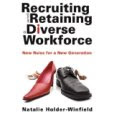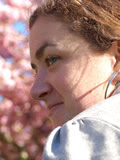 Well, HRC’s days as a candidate in the 2008 race may be numbered, but not so the impact she’s had on the electorate. Weighing in here today is Kristen Loveland, offering an inter-gender, intra-generational conversation with her brother, Andrew. Kristen, an MPhil in Modern European History and a staffer at the Association for Jewish Studies, has a great blog called The Choice. While an undergrad at Columbia University, Kristen co-founded the university’s first progressive student magazine, Ad Hoc, and became its Editor-in-Chief. I am proud to call her my (very over-qualified) summer intern, and to introduce her as a new regular here on GWP. Welcome, Kristen! -GWP
Well, HRC’s days as a candidate in the 2008 race may be numbered, but not so the impact she’s had on the electorate. Weighing in here today is Kristen Loveland, offering an inter-gender, intra-generational conversation with her brother, Andrew. Kristen, an MPhil in Modern European History and a staffer at the Association for Jewish Studies, has a great blog called The Choice. While an undergrad at Columbia University, Kristen co-founded the university’s first progressive student magazine, Ad Hoc, and became its Editor-in-Chief. I am proud to call her my (very over-qualified) summer intern, and to introduce her as a new regular here on GWP. Welcome, Kristen! -GWP
An Inter-gender, Intra-generational Conversation
Kristen Loveland
Taking my view that it’s better to dialogue than snipe to the streets, I found someone even younger than me (age 24) to talk about Hillary’s candidacy. That person? My brother, Andrew, who’s 17 and one of the only Hillary supporters in his high school. As an Obama fan myself, I think it’s possible both to be a feminist and to not support this particular female candidate. But after speaking with Andrew about his classmates’ take on a woman president, I almost wanted to switch teams.
Kristen: So let’s cut to the chase: why don’t your classmates think Hillary should be prez?
Andrew: Well, a lot of them joke about her not having masculine characteristics and say her crying on TV proves she couldn’t run a country. They joke that she should be making sandwiches for the men instead.
K: Do girls in your class object to this sort of thing?
A: Well, they don’t say girls should just make sandwiches, but some don’t think a woman can run the country. They think it’s all about perception and that a woman leader wouldn’t be respected, especially when dealing with leaders of other countries where women are second-class citizens.
K: But what are they taught in history? Don’t they know about England’s Margaret Thatcher, or Israel’s Golda Meir, or Pakistan’s Benazir Bhutto, who led a Muslim country?
A: They never talk about other women leaders. They just say women are generally too weak. But the guys are more vocal and use a lot of Family Guy jokes to put Hillary down.
K: Family Guy? But isn’t Peter (the husband) a complete idiot in the show and Lois (the wife) the smart one who always gets him out of scrapes and drunken stupors?
A: Yeah, but they ignore that and just think it’s funny that Peter always puts Lois down for standing up for women.
K: I feel like in my day, which was not so many days ago, girls were being told that they could be the first female president, and Murphy Brown was a high-powered news anchor, and Jessie Spano was class president and calling A.C. Slater a chauvinistic pig… What’s changed?
A: We learn in history about the 1950s “cult of domesticity†and it seems like nothing has changed. In business class we were trying to determine projected earnings and some of the kids said women would make less than men. When our teacher asked why, they said it was because the girls would have to stop working to stay home with the kids.
K: Do you think they assume this because their moms are stay-at-home?
A: Maybe, but it’s also TV shows, where you primarily see women home making dinner. Even in Arrested Development, which is an awesome show, all the women do is spend money while men solve the problems. And Laguna Beach is really bad: you have a lot of stuck-up girls, who don’t work, spending their husbands’ or fathers’ money. So the girls get into this idea and then guys think girls are weak because all they want is handbags.
K: So, why do you support Hillary?
A: I do like Obama and they share many of the same viewpoints, but for me it’s like picking out a car; sometimes one car just feels better than the other. Also, I think she’s a better public speaker, and her views on women’s rights are more progressive.
K: Would you consider yourself a feminist?
A: Well…I’m not much into protesting, and I do think Family Guy’s funny, but I guess I take it more seriously than others. Even if shows portray women in a certain light, we shouldn’t take that as the way it is in real life. Oh yeah, did I tell you how my “Bush’s last days†sticker got keyed off my car? And my Hillary sticker would have, but I pasted it on the inside of the window.
I think a few conclusions can be drawn from our convo. First, high school history curricula must be augmented with a critical supply of celebratory women’s history. The National History Women’s Project is a good place to start, but this must be implemented on an expansive basis—and not just during Women’s History Month. Second, role models are some of the most important factors influencing girls’ perceptions of their future selves—and we need better ones. Third, we need to continue the conversation. I hate to draw conclusions from afar. (I’m infuriated whenever writers condemn today’s college hookup culture without seeming to have ever spoken with the many women I knew who engaged with it on their own terms.) It’s vital to talk with young people so as to better understand the cultural and social factors that influence placid acceptance of patriarchy and misogyny in their generation. Oh, and finally, my brother’s kind of awesome, even if he does compare choosing a president to picking a car.










